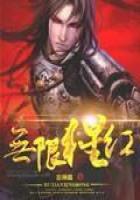THE first effect of this leap into the unknown was a fit of low spirits new to the young man's education; due in part to the overpowering beauty and sweetness of the Maryland autumn, almost unendurable for its strain on one who had toned his life down to the November grays and browns of northern Europe. Life could not go on so beautiful and so sad. Luckily, no one else felt it or knew it. He bore it as well as he could, and when he picked himself up, winter had come, and he was settled in bachelor's quarters, as modest as those of a clerk in the Departments, far out on G Street, towards Georgetown, where an old Finn named Dohna, who had come out with the Russian Minister Stoeckel long before, had bought or built a new house. Congress had met. Two or three months remained to the old administration, but all interest centred in the new one. The town began to swarm with office-seekers, among whom a young writer was lost. He drifted among them, unnoticed, glad to learn his work under cover of the confusion.
He never aspired to become a regular reporter; he knew he should fail in trying a career so ambitious and energetic; but he picked up friends on the press -- Nordhoff, Murat Halstead, Henry Watterson, Sam Bowles -- all reformers, and all mixed and jumbled together in a tidal wave of expectation, waiting for General Grant to give orders. No one seemed to know much about it. Even Senators had nothing to say. One could only make notes and study finance.
In waiting, he amused himself as he could. In the amusements of Washington, education had no part, but the simplicity of the amusements proved the simplicity of everything else, ambitions, interests, thoughts, and knowledge.
Proverbially Washington was a poor place for education, and of course young diplomats avoided or disliked it, but, as a rule, diplomats disliked every place except Paris, and the world contained only one Paris. They abused London more violently than Washington; they praised no post under the sun; and they were merely describing three-fourths of their stations when they complained that there were no theatres, no restaurants, no monde, no demi-monde, no drives, no splendor, and, as Mme. de Struve used to say, no grandezza. This was all true; Washington was a mere political camp, as transient and temporary as a camp-meeting for religious revival, but the diplomats had least reason to complain, since they were more sought for there than they would ever be elsewhere. For young men Washington was in one way paradise, since they were few, and greatly in demand. After watching the abject unimportance of the young diplomat in London society, Adams found himself a young duke in Washington. He had ten years of youth to make up, and a ravenous appetite. Washington was the easiest society he had ever seen, and even the Bostonian became ******, good-natured, almost genial, in the softness of a Washington spring. Society went on excellently well without houses, or carriages, or jewels, or toilettes, or pavements, or shops, or grandezza of any sort; and the market was excellent as well as cheap. One could not stay there a month without loving the shabby town. Even the Washington girl, who was neither rich nor well-dressed nor well-educated nor clever, had singular charm, and used it. According to Mr. Adams the father, this charm dated back as far as Monroe's administration, to his personal knowledge.
Therefore, behind all the processes of political or financial or newspaper training, the social side of Washington was to be taken for granted as three-fourths of existence. Its details matter nothing. Life ceased to be strenuous, and the victim thanked God for it. Politics and reform became the detail, and waltzing the profession. Adams was not alone. Senator Sumner had as private secretary a young man named Moorfield Storey, who became a dangerous example of frivolity. The new Attorney-General, E. R. Hoar, brought with him from Concord a son, Sam Hoar, whose example rivalled that of Storey. Another impenitent was named Dewey, a young naval officer. Adams came far down in the list. He wished he had been higher. He could have spared a world of superannuated history, science, or politics, to have reversed better in waltzing.
He had no adequate notion how little he knew, especially of women, and Washington offered no standard of comparison. All were profoundly ignorant together, and as indifferent as children to education. No one needed knowledge.
Washington was happier without style. Certainly Adams was happier without it; happier than he had ever been before; happier than any one in the harsh world of strenuousness could dream of. This must be taken as background for such little education as he gained; but the life belonged to the eighteenth century, and in no way concerned education for the twentieth.















